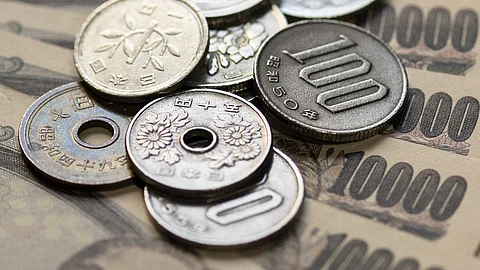
- NEWS
- the EDIT
- COMMENTARY
- BUSINESS
- LIFE
- SHOW
- ACTION
- GLOBAL GOALS
- SNAPS
- DYARYO TIRADA
- MORE

The yen weakened against the U.S. dollar Tuesday ahead of a closely watched Bank of Japan policy decision, with expectations mounting that the central bank will maintain interest rates but adjust its bond purchase strategy.
The dollar rose past 145 yen in morning trading, up from around 144.30 yen on Monday, as traders reacted to speculation that the BoJ may slow the pace of its bond tapering — a shift from its ultra-loose monetary policy.
“Slowing the bond taper will help keep interest rates lower than otherwise, providing support to the economy amid heightened trade uncertainty,” said Carol Kong, an analyst at the Commonwealth Bank of Australia.
The BoJ, which began phasing out massive government bond purchases last year, is now considering easing the pace of those reductions, according to analysts and reports. A recent spike in yields on “super long” Japanese Government Bonds (JGBs) has fueled speculation of a more cautious stance.
Despite this, the central bank is widely expected to hold its key interest rate steady at around 0.5%, far below the U.S. Federal Reserve’s 4.25–4.5%.
Analysts say the BoJ may wait for more clarity on global trade conditions before resuming rate hikes. “We still believe the Bank may hike rates in the second half of the year,” said Katsutoshi Inadome of SuMi TRUST. “Domestic demand remains solid.”
Trade tensions with the U.S. also loom large. Japanese Prime Minister Shigeru Ishiba said Monday there had been no breakthrough in trade talks with President Donald Trump during G7 meetings in Canada. Japan remains subject to baseline U.S. tariffs and faces additional duties on cars, steel and aluminum.
